Dream Trippers
Global Daoism and the Predicament of Modern Spirituality
DAVID A. PALMER AND ELIJAH SIEGLER
The University of Chicago Press
Chicago and London
The University of Chicago Press, Chicago 60637
The University of Chicago Press, Ltd., London
2017 by The University of Chicago
All rights reserved. No part of this book may be used or reproduced in any manner whatsoever without written permission, except in the case of brief quotations in critical articles and reviews. For more information, contact the University of Chicago Press, 1427 E. 60th St., Chicago, IL 60637.
Published 2017
Printed in the United States of America
26 25 24 23 22 21 20 19 18 17 1 2 3 4 5
ISBN -13: 978-0-226-48176-0 (cloth)
ISBN -13: 978-0-226-48484-6 (paper)
ISBN -13: 978-0-226-48498-3 (e-book)
DOI : 10.7208/chicago/9780226484983.001.0001
Library of Congress Cataloging-in-Publication Data
Names: Palmer, David A., 1969 author. | Siegler, Elijah, author.
Title: Dream trippers : global Daoism and the predicament of modern spirituality / David A. Palmer and Elijah Siegler.
Description: Chicago ; London : The University of Chicago Press, 2017. | Includes bibliographical references and index.
Identifiers: LCCN 2017016255 | ISBN 9780226481760 (cloth : alk. paper) | ISBN 9780226484846 (pbk. : alk. paper) | ISBN 9780226484983 (e-book)
Subjects: LCSH : Taoism. | GlobalizationReligious aspectsTaoism. | SpiritualityTaoism. | Pilgrims and pilgrimagesChinaHua Mountain (Shaanxi Sheng). | TaoistsUnited States. | TaoistsChina. | TaoismUnited States.
Classification: LCC BL 1923 . P 35 2017 | DDC 299.5/14dc23
LC record available at https://lccn.loc.gov/2017016255
 This paper meets the requirements of ANSI / NISO Z 39.48-1992 (Permanence of Paper).
This paper meets the requirements of ANSI / NISO Z 39.48-1992 (Permanence of Paper).
Contents
We began the research for this project in and around Qingcheng Mountain in Sichuan Province in the summer of 2004, and in the intervening twelve years, we have accumulated a mountain of thanks owed.
We offer our sincere gratitude to our home institutions over the past twelve years for giving us time and fundingfor Elijah, the Department of Religious Studies at the College of Charleston, and for David, the Department of Sociology of the London School of Economics, the cole Franaise dExtrme-Orient, and the University of Hong Kong (Department of Sociology and Hong Kong Institute for the Humanities and Social Sciences). We thank our department heads, Lee Irwin and Zeff Bjerken (College of Charleston), Nikolas Rose (LSE), and Karen Laidler and Lui Tai-lok (HKU), and institute directors Franciscus Verellen (EFEO) and Angela K. C. Leung (HKIHSS), as well as John Burns, dean of social sciences at HKU, for their support and encouragement. The HKIHSS provided a generous publication subsidy for the production of this volume. Much of Davids writing for this book took place while he was on a Taiwan National Science Foundation fellowship at the Department of Chinese of Yuan Ze University in the summer of 2013, and on a fellowship at the Asia Research Institute of the National University of Singapore in the summer of 2014. We are grateful to Chong Yun-ying and Prasenjit Duara for hosting him and providing excellent conditions for his writing work. As well, the College of Charleston and the University of Hong Kong supported our visits to each otherElijah spoke at the University of Hong Kong in 2010, and David at the College of Charleston in 2013.
We offer our thanks to our students who have read and commented on various drafts over the years. Students in Davids graduate seminar in the fall of 2015Cheung Wai Leung, Liu Qing, Liu Zhao, Peng Qiaoyang, Temily Tianmay Jaya Gopan, and Fabian Winigerread through the entire draft and offered especially detailed comments and suggestions. Davids research assistants Martin Tse Man Him and Deng Xili provided precious help in the transcription and editorial process.
Over the years, we tested out our ideas at venues and conferences around the world. We are grateful to David Mark Shields, Steve Humphries-Brooks, Chen Jinguo, Lu Yunfeng, Peter van der Veer, Gordon Matthews, and Benjamin Penny for invitations to give presentations at Bucknell University in Pennsylvania, Hamilton College in New York, the China Academy of Social Sciences, Peking University, the Max Planck Institute for the Study of Religious and Ethnic Diversity (Gttingen, Germany), the Hong Kong Anthropological Society, and the Australian National University; and to Wilt Idema, Glenn Shive, Vincent Goossaert, K. E. Kuah-Pearce, Livia Kohn, Liang Yongjia, Knut Aukland, Michael Stausberg, Franciscus Verellen, and Gai Jianmin for inviting us to present drafts at international conferences on Asian studies (ICAS, Shanghai, 2005), modern Daoism (Harvard, 2006), Chinese religious life (EFEO and CUHK, 2006), Quanzhen Daoism (UC Berkeley, 2007), Asian heritages at the crossroads (HKU, 2007), Daoist studies (Hong Kong Institute of Education, 2007, and Loyola Marymount University, 2010), religion and ethnicity in China (National University of Singapore, 2011), religion and tourism in Asia (Frankfurt, 2014), Daoist lives (EFEO and EPHE, Aussois, 2015), and the thirtieth anniversary of the Institute of Daoist and Religious Studies of Sichuan University (Qingchenshan, 2015).
Portions of this book have previously been published in Nova Religio, Ethnos, and Cahiers dExtrme-Asie, and in volumes published by the University of California Press, the Institute of East Asian Studies at UC Berkeley, and Berghahn Books; we thank the editors and publishers for their permission to reproduce sections of these works here.
We also thank Priya Nelson and Dylan Montanari at the University of Chicago Press for their patience and enthusiasm, and the three anonymous reviewers for their careful critical reading.
We have been friends and collaborators since we were both high school students in 1984, and creating this book together seemed a natural extension of this collaboration (see the appendix for more details). Together, we presented our research in progress at the conferences of the American Anthropological Association in New Orleans in 2010 and the American Academy of Religion in Baltimore in 2013 (in a panel organized by David Mozina and Elena Valussi). We wrote and discussed together in a rooftop garden in Hong Kong, several restaurants in Chengdu and Charleston, a scruffy hotel courtyard in Beijing, and a leafy backyard in Toronto. All this took time away from our families, and to them we owe more than thankswe owe everything.
Finally, this book would not have been possible without the willing participation of its subjects. Many thanks to all those participants of the China Dream Trips, to Daoist monks, to Mantak Chia, Livia Kohn, and Mark Johnson, to Masters Hu, Hao, Hei, and Pu.
Most of all, we thank our three main protagonistsChen Yuming, Louis Komjathy, and Michael Winn. We thank them not only for their patience and candor while sitting for hours upon hours of repeated interviewsand for allowing us to participate in their retreats, classes, and lecturesbut for their overall support of and enthusiasm toward our project. This support and enthusiasm manifested itself uniquely in their detailed comments after reading a full manuscript of Dream Trippers; we have incorporated many of their insightful responses into the final text. Of course, any errors that remain are fully our responsibility.
Thus, we dedicate Dream Trippers to our friends Chen Yuming, Louis, and Michael. We hope we have told your stories and expressed your opinions faithfully, even if you may not fully endorse our conclusions.

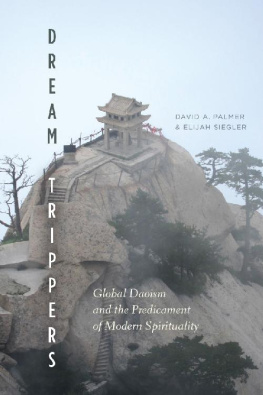

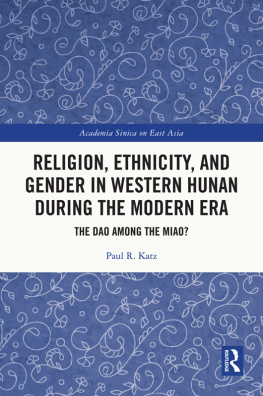
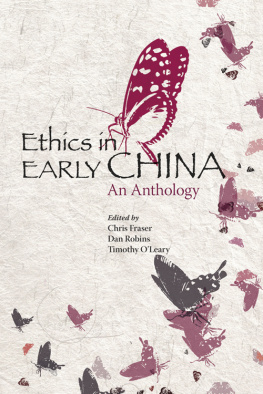

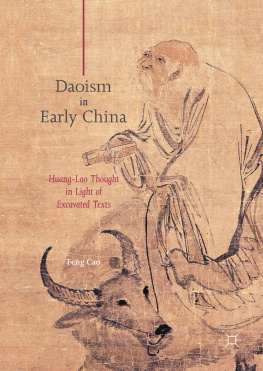
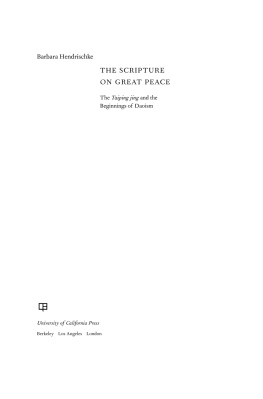
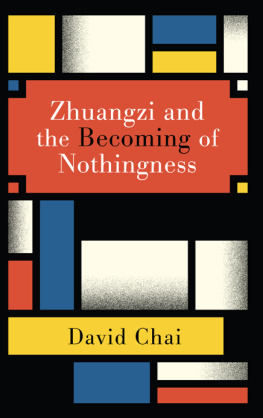
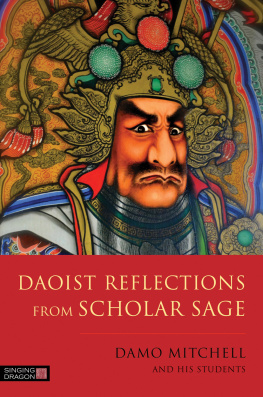
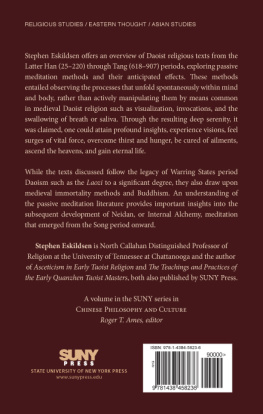

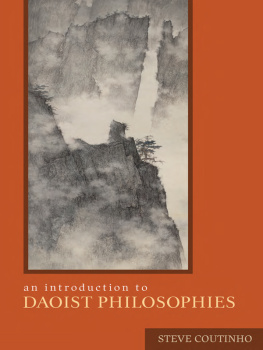
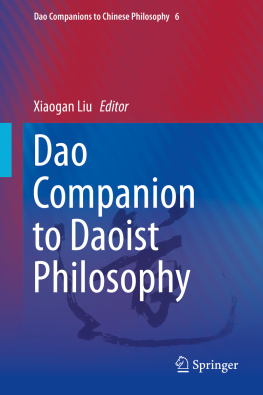
 This paper meets the requirements of ANSI / NISO Z 39.48-1992 (Permanence of Paper).
This paper meets the requirements of ANSI / NISO Z 39.48-1992 (Permanence of Paper).